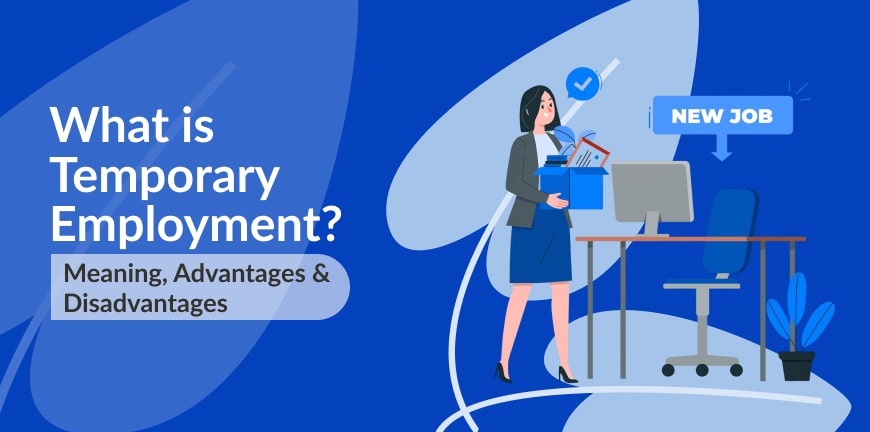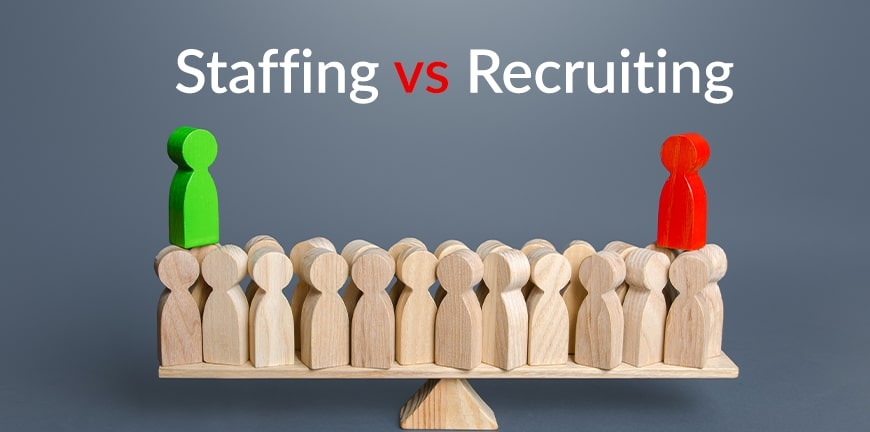
“Great Place to Work-Certified” Excellence Recognized!
09/04/2025
Alp Consulting Receives Silver CyberVadis Award for Cybersecurity Excellence
10/04/2025- What is Temporary Employment? Meaning & Definition
- How Does Temporary Employment Work?
- Why Is Understanding Temporary Employee Important for HR, Business Owners?
- What are the Types of Temporary Employment?
- What are the Examples of Temporary Employment?
- Advantages and Disadvantages of Temporary Employment
- What are the Advantages of Temporary Employment?
- What are the Disadvantages of Temporary Employment?
- Who Should Consider Temporary Employment?
- Frequently Asked Questions (FAQs)
Businesses, during their busiest times of the year, may find themselves in need of temporary workers to keep up their operational productivity. Why temporary workers? They are individuals who can provide support with workloads without requiring long-term commitment from the employer. As a company, if you are on the fence on deciding whether temporary employment is the right choice for you or not, here is a guide that can help make the decision for you.
What is Temporary Employment? Meaning & Definition
Temporary Employment is a type of employment where workers are employed and engaged for a specific period of time which could include fixed-term, project, or task-based contracts as well as seasonal work or casual daily work. Temporary workers may work full time or part time depending on the business needs of organizations. Temporary employees are sometimes called contractual, seasonal, gig, interim or freelance workers.
How Does Temporary Employment Work?
Temporary employment has become quite common these days as businesses constantly require employees to fill positions during seasonal workloads or for specific projects. An external third-party recruitment and staffing company provides you with a skilled worker on a temporary basis.
There is a contract that holds this arrangement intact which includes terms and conditions for a fixed period. The temporary worker is to sign the contract with the staffing agency. During their assignment or work period with the organization, the temporary worker still remains employed and taken care of by the staffing agency,
Payroll for a temporary worker is also processed by the staffing agency, after deducting a specific fee.
The external staffing agency is responsible for the onboarding of the temporary employee and providing them with the required material or training necessary to perform the duties. The entire cycle of temporary employment is handled by the third-party staffing agency including payroll, onboarding, tenure during the employment and offboarding.
Why Is Understanding Temporary Employee Important for HR, Business Owners?
Understanding the importance and role of a temporary employee is extremely important for both the HR and Business Owners. For HR, it lets them manage resources mindfully and for business owners it translated into flexibility and productivity. Some of the key reasons as to why it is important to understand temporary employees is as follows:
- Managing fluctuating workload demands gets easier with temporary employees. Businesses can adapt to market changes, keep up their productivity while not having to hire them as full-time employees and be responsible for them for a longer term.
- Overhead costs can be controlled by hiring temporary employees as they are only hired for a specific period like peak periods or specific periods. The advantage of this is that, while meeting operational requirements as needed, there are no financial obligations involved with temporary employees like permanent employees.
- Temporary employees can help avoid burnout of regular employees during seasonal workloads and maintain operational productivity throughout the cycle.
- Temporary employees offer a trial period for the company. HR professionals and team leaders can assess a temporary employee’s skills and fit within the organization, making informed decisions about future permanent hires. This reduces the risks associated with long-term employment commitments.
What are the Types of Temporary Employment?
There are several types of temporary employment, depending on type of workforce and business requirements of organizations. Some of the key types of temporary employment are-
1. Seasonal temporary employment
Temporary workers are hired during high seasonal workloads in organizations such as holiday seasons or peak business periods. During these times, employees must be hired swiftly while ensuring they are provided with necessary resources as well as mental health support.
2. Project Based employment
Employees are hired for a specific period to help complete a project. Upon completion of the project the employment contract ends as well. Candidates with specific skills are hired in this type of temporary employment as certain projects require specialized skills.
3. Temp to permanent employment
Organizations hire employees on a temporary basis but with a potential to transition to permanent employment, depending on factors like employee performance and company needs.
4. Short term employees
Candidates are hired through staffing agencies for short term assignments. In this type of temporary employment, the staffing agency is responsible for most of the HR related matters concerning the employee. These types of workers usually work for multiple clients simultaneously as they are not exclusively hired by an employer.
5. Remote temporary employees
Workers who are hired in this type of employment usually have specific skills or are chosen to do certain tasks and projects but are to work in remote settings. These individuals along with the right technical skills must also possess strong management and communication skills in order to effectively collaborate with other team members while remaining productive.
What are the Examples of Temporary Employment?
Temporary Employment is sought after across various industries to address specific short term needs or demands. Some of the examples of temporary employment include-
- Retail Stores, where there is a ton of work to get done, especially during holiday seasons. Having temporary employees can help the other employees in store provide better customer service, handle cashier duties, and meet demands without over hiring.
- Hospitals are another classic example where temporary employees are extensively employed. Workers like nurses and other healthcare professionals are often required in hospitals especially during flu season or when employees are on maternity leave.
- Tech companies, use temporary employees to address skill gaps or to assist them with software development, IT support for large or one-off projects.
- Event management companies, often require extra staff for large scale events or conferences for roles like servers, setup crews etc. These individuals handle logistics, customer service and ensure everything at the event runs smoothly.
- Marketing agencies, use temporary employees to assist with research, social media, and campaign execution. These individuals are usually interns. While internships are temporary, they provide essential support during busy periods and offer students real-world experience while contributing to the agency’s goals.
Advantages and Disadvantages of Temporary Employment
While temporary employees offer a myriad of benefits for companies, there are also certain drawbacks you must address to use then successfully.
What are the Advantages of Temporary Employment?
1. Cost-effective
Companies can save overhead costs of permanent employment by hiring temporary workers, as they do not have to be paid annually or must spend their resources on training, benefits that full time workers are entitled to.
2. Swift hiring
Temporary employees are hired to assist with specific work or on projects that require specific skills. It is not necessary to hire someone who would fit into your company culture. You can hire one who has the skills without thinking further, so the hiring is faster.
3. Flexibility
Temporary employees can be hired on an On-Demand basis. Temporary employment offers companies the flexibility to hire as per their need and facilitate continuous operations and stay on track after a shit in the market.
4. Faster positive outcomes
Onboarding a temporary employee only requires the employer to introduce them to the project they will be working on. There is no need for them to familiarise with the company’s values, mission, or vision, so they are free to get to work as quickly as possible.
What are the Disadvantages of Temporary Employment?
1. Competitive labour market
If your company has a higher requirement for skilled labourers, you may have to compete with other companies to get the best out of the lot.
2. Risk of lower quality workers
It is not possible to know if a temporary worker will deliver on the task they are assigned until they are officially in the role, although you may have chosen carefully.
3. Lesser sense of loyalty
Temporary employees are only assigned to do specific tasks or projects and are only present for a short period. So, they usually do not develop a connection with your brand or work culture. Sometimes this could lead to disloyalty and a decline in job quality.
Who Should Consider Temporary Employment?
Temporary employment is apt for small as well as large corporations. It is a strategic option that benefits employers of all sizes and industries. From startups needing flexibility, to established companies managing seasonal spikes, and nonprofits operating on tight budgets, temporary staffing provides a smart way to stay agile and efficient. Employers who value adaptability, cost control, and access to on-demand talent should seriously consider integrating temporary roles into their workforce strategy.
Frequently Asked Questions (FAQs)
1. What is the meaning of a temporary employment?
The meaning of temporary employment is employing workers temporarily in an organization for a specific period of time which could include fixed-term, project, or task-based contracts as well as seasonal work or casual daily work.
2. How long can you be a temporary employee?
A temporary employee can work for a brief period, a defined period, which usually does not last for more than a year. However, the duration can depend on the specific job, employer, and nature of work.
3. What is the role of temporary staff?
Temporary staff are workers employed at a company for a limited time to help handle busy seasons or to lend specialty knowledge to complex projects.
4. What happens when temporary workers are no longer needed?
If the company no longer requires the temporary worker’s services, they will simply stop the collaboration. The temporary worker initially ends up back in the staffing company’s talent pool until a new assignment is found for the employee.
5. Can temporary workers also be taken permanently?
Organizations hire employees on a temporary basis, but these employees also have a potential to transition to permanent employment, depending on factors like employee performance and company needs.
6. Why should companies hire temporary workers?
Temporary workers offer flexibility to proactively respond to market needs and demands. They can easily adapt to various locations, for different personalities, and periods. Also, hiring a temporary worker allows you to evaluate long-term job requirements.
7. How does a temporary employment influence a workplace productivity?
Temporary employment help fill talent gaps quickly, supporting permanent staff during peak periods. They bring in specialized skills for critical projects, they help keep operations running smoothly and efficiently. A well-managed temporary workforce boosts agility, reduces burnout, and ensures that deadlines are met without compromising quality.
Contact Us For Business Enquiry

Kasthuri R
Kasthuri R is the Co-Founder & Executive Director at ALP Consulting, bringing over 23 years of experience in search, staffing, and HR consulting. She has been instrumental in driving ALP’s recruitment, employee leasing, and executive search practices across diverse industry verticals. With deep expertise in talent acquisition, HR strategy, and operational management, Kasthuri has built scalable, client-focused solutions that enhance workforce efficiency. Her strategic leadership continues to steer ALP Consulting toward innovation and excellence in people management.




